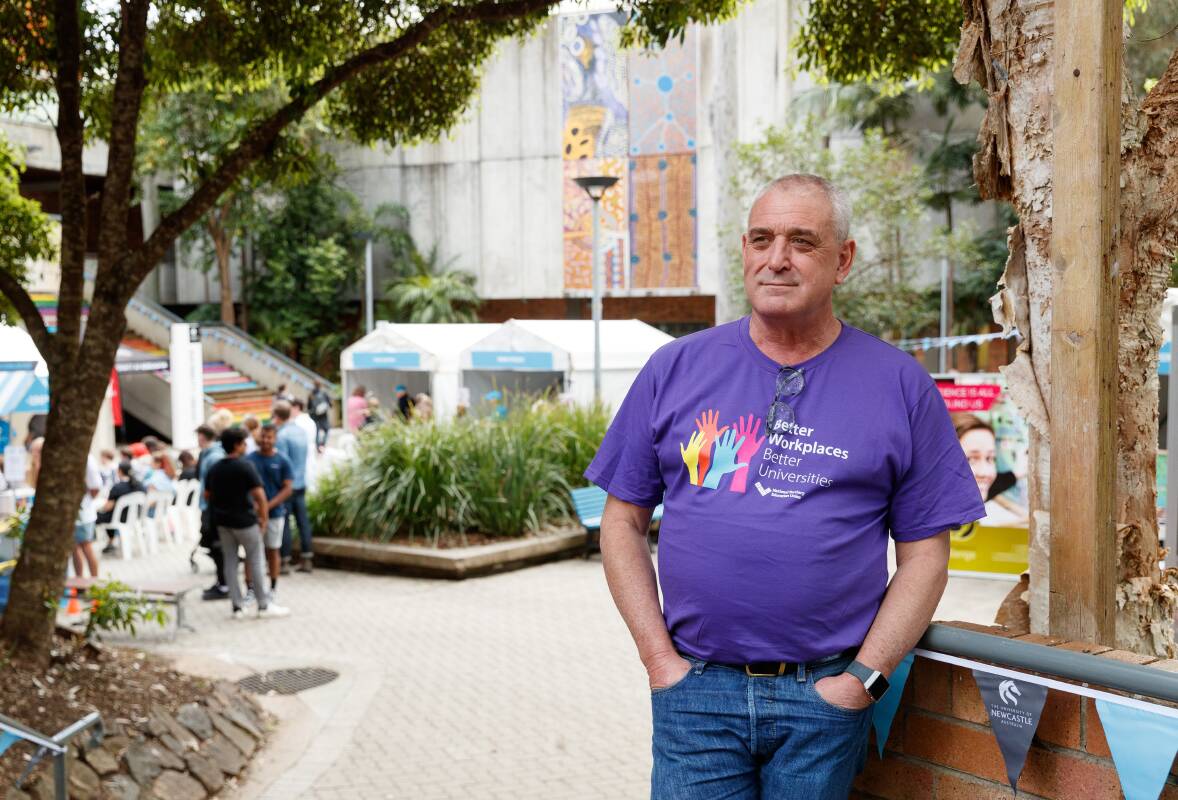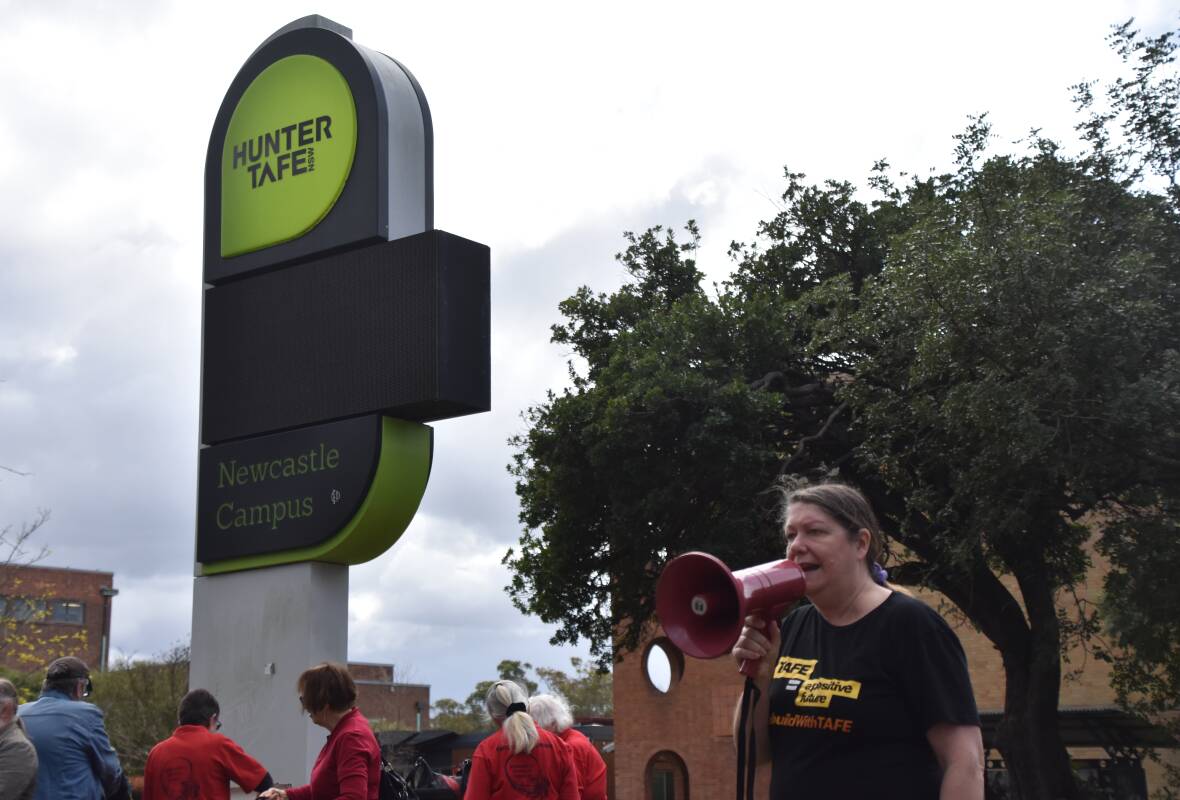
University and TAFE staff will strike on Wednesday amid ongoing industrial bargaining from both unions.
Members of the National Tertiary Education Union (NTEU) will stop work for 24 hours across all University of Newcastle campuses.
The strike comes more than a year into ongoing award negotiations between the union and university management and follows a vote from NTEU members two weeks ago to escalate industrial action.
"Our members are disappointed by a lack of movement on key issues such as safe workloads, a fair pay offer and job security," NTEU Newcastle branch vice-president, associate professor Terry Summers said.
"Staff are now taking action to defend the excellent higher education that we are committed to provide."
Professor Summers said job insecurity and cuts are key concerns for the union.
"Last year, despite the university making a record surplus of $185 million, hundreds of colleagues were impacted by job cuts," he said.
"We need protections against job cuts and improved pathways to more secure jobs."
In August, the NTEU slammed an enterprise agreement offer from the university as "grossly inadequate". The agreement offered staff a 3 per cent per annum wage increase over the agreement's slated two years, to December 2024.
The union, who said due to the ongoing bargaining period the offer equated to 2 per cent each year, is asking for a 15 per cent wage increase over three years or CPI plus 1.5 per cent, whichever is higher.
University of Newcastle deputy vice-chancellor Professor Kent Anderson said the university is "committed to reaching agreements that will maintain and enhance working conditions for staff, support excellence in our education programs, research efforts and student experience".
The university's current offer to the union would see three additional paid leave days for an Easter shutdown, 10 days of paid "Life Leave" every year, an increase of superannuation for casuals from 10.5 per cent to 17 per cent - which has been supported by the union - and a new conversion process for academic casual staff to more secure employment.
Professor Anderson said the offer "strengthens benefits and conditions while securing the future of our University for the long-term".
"We believe enterprise agreement negotiations are close to finality," he said. We are keen to reach a mutually acceptable outcome as soon as possible. This can only be achieved through genuine and good faith negotiations at the bargaining table."
The university will be open and operating on Wednesday and Professor Anderson said he "expects that most classes will continue as normal for students on Wednesday and course coordinators will inform students if there are any changes".

At 12pm on Wednesday, Hunter TAFE staff from the NSW Teachers Federation will hold a one hour stop work meeting.
The strike is the last in a series of protected industrial action held across the Hunter and Central Coast this week which, the union said, is the "first time ever".
The Federation is currently negotiating a one year enterprise agreement with TAFE NSW for "fairer wages, job security, sustainable workloads and to defend working conditions". The union said all these claims were rejected by TAFE NSW in the first round of negotiations.
Three quarters of TAFE Federation members rejected an offer of 2.53 per cent in August. Post schools organiser with the Federation Annette Bennett told the Newcastle Herald the offer was "insulting" and that the union is calling for a 7 per cent increase to reach parity with primary and secondary teachers.
Ms Bennett said another key sticking point is increased casualisation.
"More than 70 per cent of our teachers are casual," Ms Bennett said.
"Some who have been working a full-time load for years. They have the stress of having no income during vacation periods while not being able to apply for a home loan because they are casual.
"We need to rebuild the TAFE teacher workforce starting with ending casualisation and exploitation".
On Tuesday, a TAFE NSW spokeswoman said TAFE is "disappointed that the NSW Teachers' Federation is encouraging its members to undertake industrial action at a time when the nation's leaders of government, industry, education, and the labour movement are coming together to try and solve critical skills shortages".
"As Australia's largest training provider, employers depend on TAFE NSW to provide a pipeline of skilled job ready graduates to staff their businesses," the spokeswoman said.
"Industrial action which includes rolling stoppages, bans on student administration, and interfering with the enrolment of new students will hinder the supply of job ready graduates to industries that are already facing skills shortages.
"This year's state budget set out a wages policy for public servants with a maximum remuneration increase of 3 per cent) comprising 2.53 per cent salary and 0.5 per cent superannuation).
"In order to pass this increase on to staff as quickly as possible, TAFE NSW opted not to seek any changes to the provisions of the existing agreement, including seeking any productivity gains. The NSW Teachers' Federation has instead opted for industrial action."
Read also:
- Multi-million dollar plan for Trinity Point marina expansion approved
- Lake Mac firebug sentenced for torching cars, mattresses, garbage
- Belmont South machete killer will be out early after appeal
-
Royal pain as double demerits strike early in honour of Queen public holiday
WHAT DO YOU THINK? We've made it a whole lot easier for you to have your say. Our new comment platform requires only one log-in to access articles and to join the discussion on the Newcastle Herald website. Find out how to register so you can enjoy civil, friendly and engaging discussions. Sign up for a subscription here.







